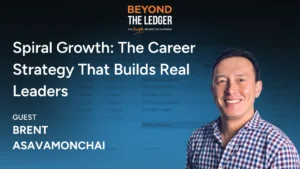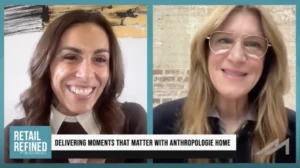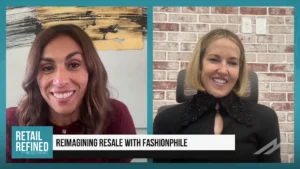Why is Theft Leading to a Growing Retail Exodus? Some Experts Say Weak Penalization Is Part of the Problem.
Several major cities, particularly San Francisco, are seeing a retail exodus as many businesses are reporting a rise in theft and reevaluating their presence in these areas. These departures suggest a troubling environment that can still attract tourists, but the rise in crime is having a negative effect on the general business landscape. Subsequently, this exodus is turning vibrant marketplaces into retail wastelands. What’s more is anti-theft store policies impose limited action and in most cases, discourage store security from enforcing anything to reduce theft. This all seems to create a cycle where even law enforcement is reluctant to act. The domino effect has now resulted in retailers feeling they have no other options but to jump ship.
But is this trend of retailers leaving cities due to theft going to be the norm? Seemingly, this is the likely response that many are opting for. More recently, Target joined the list of retailers shuttering shops and plans on closing nine stores. The retail exodus is being blamed on lawlessness, coupled with poor penalization against the offenders responsible. This is ultimately harming the customer experience vital for retail survival.
Douglas Friedman, Distinguished Associate Professor of Business Management at East Stroudsburg University, examines the domino effect of retail theft and poses some thought-provoking questions on how it’s impacting cities, retailers, and customers. He presents a nuanced understanding of retail business dynamics, the retail exodus, and shares his perspective on the complex relationship between businesses and the environments they operate in.
Friedman’s Thoughts on the Retail Exodus
The Dilemma of Staying in High Crime Markets
“The problem with staying in a market like San Francisco is, yes, you have a lot of tourists coming in who might be potential customers and who want the experience of shopping in your store and buying items. And buying them online doesn’t work for a variety of reasons. That sounds great. The problem is when you get to the point where there’s so much retail theft that you are no longer making money, it doesn’t matter how many tourists are coming in. Well, realistically, a lot of businesses, a lot of retail stores that are in these high crime cities have no choice but to leave. When you make crime legal, when you make it legal for people to steal and you make it essentially a crime for store security to stop them, I can’t see any way out of that other than to just leave. Because putting things behind locked cases is fine, but what stops someone from getting the employee to open a locked case and then walking out of the store without paying?”
Implications on Legal and Security Measures
“It’s unfortunate, but realistically, stores have to leave those markets and focus on the markets where they can actually do business. The problem with staying in a market like San Francisco is, yes, you have a lot of tourists coming in who might be potential customers and who want the experience of shopping in your store and buying items and buying them online doesn’t work for a variety of reasons. That sounds great. The problem is when you get to the point where there’s so much retail theft that you are no longer making money, it doesn’t matter how many tourists are coming in. Besides which, why should the tourists not rob you? There’s no reason not to rob people. In a situation where retail theft is not prosecuted at all, the logical thing for customers to do is to steal. Why should I pay for something when nobody else is paying? And banning customers doesn’t really work. How do you ban them? Put up a sign that says you’re not allowed in here and they walk in anyway and what’s going to happen? The police in those cities are not going to arrest them for trespassing. By the time you call the police, they’ve already stolen another $900 worth of stuff and if they do get arrested, they’ll be released before the police officers finish filling out the paperwork.”
Relocating to Cities That Penalize Theft
“So it is a hopeless situation. What you have to do is put facilities near cities like that but where the police and district attorneys are still prosecuting criminals. So maybe abandon San Francisco but maybe some of the suburbs are okay. I’m not familiar enough with San Francisco to know. For example, abandon Manhattan but in some of the outer boroughs, the DAs are still prosecuting criminals. So people would have to go to Brooklyn or Queens to get to your store. That’s better than being robbed. And given that the criminals sometimes turn violent, it’s too risky for your people. And if you look at what happened in New York about a year or so ago, a guy attacked a convenience store clerk with a knife. The convenience store clerk defended himself and the DA was going to prosecute the convenience store clerk for defending himself until there was a national outrage and he backed off. But if the story doesn’t make national news, your store might be found liable for defending itself against the criminals, which is why security guards don’t work because there are videos of people going into stores in San Francisco, in Los Angeles, and there’s a security guard there who just stands there and watches them. And if the security guard does get in the way, so much as stands in the way of the criminal, the security guard is more likely to get in trouble than the criminal. The only thing you can do is get out of that situation.”
Surveillance and Law Enforcement’s Role
“There is no winning in it. I don’t think you can. Constant surveillance accomplishes nothing. Constant surveillance lets you know who’s robbing you or who, more to the point, who just robbed you. But if the police aren’t going to arrest the thieves and if they arrest the thieves, the DA is not going to prosecute, what difference does it make? And for a lot of the people who are committing the actual crimes, often they’re hired by people behind them. And so you’ve got a homeless person who goes in, steals $949 worth of stuff, just to make sure they’re under the $950 limit, and then gives it to the employer, if you will, who then gives them some amount of money in exchange. So if they arrest the homeless person at the worst, so what happens? The homeless person gets 30 days in jail. That’s a roof over their heads, three hots and a cot, as the saying goes. There’s no real disincentive to stealing. There’s no real disincentive to stealing, then going back into the same story, even then stealing some more.”
Impact on Customer Experience and Store Operations
“I don’t see how you can possibly give a good customer experience because what happens is not only are they stealing, you have to protect against the stealing, but having the people in there who are doing the stealing, it’s not like a teenager stealing a tube of lipstick or sneaking a t-shirt out under his clothing where people might not even notice, or even if they did, it’s not a big deal. These are much more violent people. So having those violent people in the stores in itself is wrecking the customer experience. I do not see how you can have a good customer experience when you have that kind of situation. What comes to mind is a way a store could stay in business where there would have to be someplace inside the store where people would almost have to give you a credit card or a cash deposit on an item, and then you would bring them the item. It reminds me during COVID, one of the Chinese restaurants in my area, instead of having people come inside, set things up so you did not enter the restaurant. You stood at the counter. They had plexiglass actually covering it. Either you called your order in or you gave them your order, and you paid for your order with a credit card, and after you had paid for your order, they put it in. You know how the jewelry stores have those things where you put something in, close the door, and then you can open the other door? Well, that is what they had for Chinese food. It would have to be something like that.”
Reflections on Decisions and their Consequences
“I do not know how you have even a halfway decent customer experience with that because people need to be able to try on clothing if that is what you are selling or check other items. I do not think there is a good solution. Just leaving is the least bad solution. Maybe if enough businesses leave and enough jobs go away, that will force the powers that be to change their attitudes on it. Truth be told, this is what people voted for. They knew what they were getting, and they voted for it anyway. That is where you are. One of the reasons cities were formed in the first place, the word civilization comes from the word for cities, was to protect people from robbers, highwaymen, if you will. There were not highways back then. Inside the city, the idea was you were safer. Now the cities are the dangerous places. Out by me, we do not have a whole lot of crime. We do not get home invasions because, let us just say we have a lot of Second Amendment believers in my area. The ones who do not have firearms have big dogs. People do not break into houses. If people break into businesses, the police arrest them, state troopers fairly quickly, usually within a few days of their first crime. Then the DA prosecutes them. We do not have nearly as much of this problem as people do elsewhere. Sometimes the truth is there is no good solution. I am afraid this is one of those times.”
Article written by Alexandra Simon.








